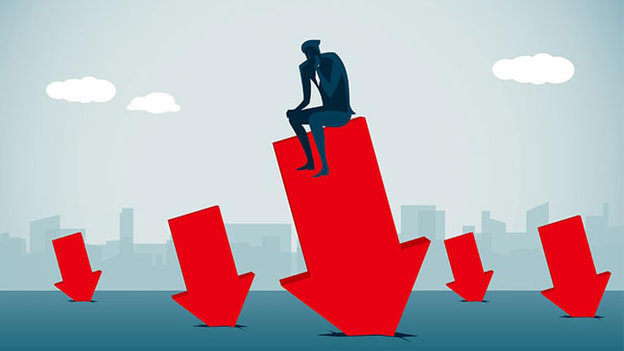The dynamic role of career resilience for shaping the post-pandemic world

In the post pandemic time, where many teams are working remotely, decisions are majorly driven by data and technology, jobs are at stake. The pandemic is prompting professionals in the country to rethink their career paths with many looking at switching industries as well as upskilling themselves to advance in their careers. The COVID-19 has presented the world with one of the most perplexing challenges in recent times. With employees slowly returning to work, the world needs a new playbook as the current and virtual worlds collide and reshape both work and home. We need to examine the post-COVID-19 future of work through the prism of building a resilient and healthy workforce centred on employee wellness and workforce development.
Career resilience is the best option to thrive in a competitive environment. It is an ability of a person to adjust and adapt to career changes as and when they occur. When one develops career resilience, they are taking charge of their career path and developing various new skills to remain in tune with the current trends. This will help to reduce risk and strengthen mental well-being, as well as position them for enriching future opportunities. A career-resilient workforce includes employees who are dedicated to continuous learning and reinvent themselves to keep up with the changes in the market while taking responsibility for their own careers.
Need of Career Resilience in Pandemic:
Today, there are advances in social, technological, and business models and it thus requires professionals’ skills to develop and change as well. Nowadays, various organizations are looking for employees who are flexible to learn new skills and are open to change. Along with learning new skills, it is important to develop personal and professional resilience to provide security of career in an unpredictable market. The Covid has impacted the behavioural health of employees in the Workplace. The common concerns are fatigue, burnout and moral injury.
Employee Career Resilience Strategies:
There are various ways to develop personal career resilience like continuous learning is crucial to stay up to date on emerging advancements and industry trends. Build a robust professional network is the second strategy for opportunities to connect in network. Self-Reflecting yourself is very important to reflect on strengths, past experiences, opportunities to develop, and current role. The last step is to determine short-term, and long-term professional goals, regularly assess and revise them.
Benchmarking Skills of employees:
Employers are keeping employees updated regarding the recent market trends and organizational goals to keep pace with the industry. Few organizations are helping employees explore career opportunities, job movement, and facilitate lifelong learning.
Initiating Conversations:
Organizations are developing a robust communication plan with a two-way listening model and an environment of trust, which helps reduce any vulnerability an employee is feeling and improve social connection. Some companies have launched various programs to initiate transformative conversations. These programs help people experiencing change as they usually go from understanding to taking ownership and trust to commitment.
Building Career Resilience Skills
The companies that have weathered the pandemic have demonstrated resilience by pivoting from a business-first to people-first perspective. As organizations are re-engaging their employees in return to increase their productivity, organizations are continuing to build resilience among their employees. Organizations can help build a resilience mindset amongst employees by giving them the tools to grow amid challenges and taking courageous actions in the face of fear.
Using Crowdsourcing to solve complex work problems:
Nowadays, companies are looking to engage their employees in developing solutions to complex problems. They recognize the opportunity to leverage their workforce and customer base to help them answer key questions around the job, career and task impacts of COVID-19. They use crowdsourcing to gather open-ended data and ideas from employees to be prepared for the future. This helps the companies quickly gather and execute new ideas that address specific challenges the employees and customers face.
Developing an employee mindfulness program & Career well-being
Organizations are also building mindfulness programs to help employees disconnect from the emotional toll and create mindful awareness and how to respond with kindness and compassion to themselves as well as others. Mindfulness provides the ability to influence four factors such as leadership, performance, well-being, and decision-making which will help give a broader perspective and respond with clarity under challenges. Organizations are reviewing their purpose and mission through the pandemic crisis, considering how they align to long-term value creation that includes employees, customers, and society in general. Every company needs a program that helps employees regularly assess their skills, interests, and values to understand the type of job for which they are best suited.















